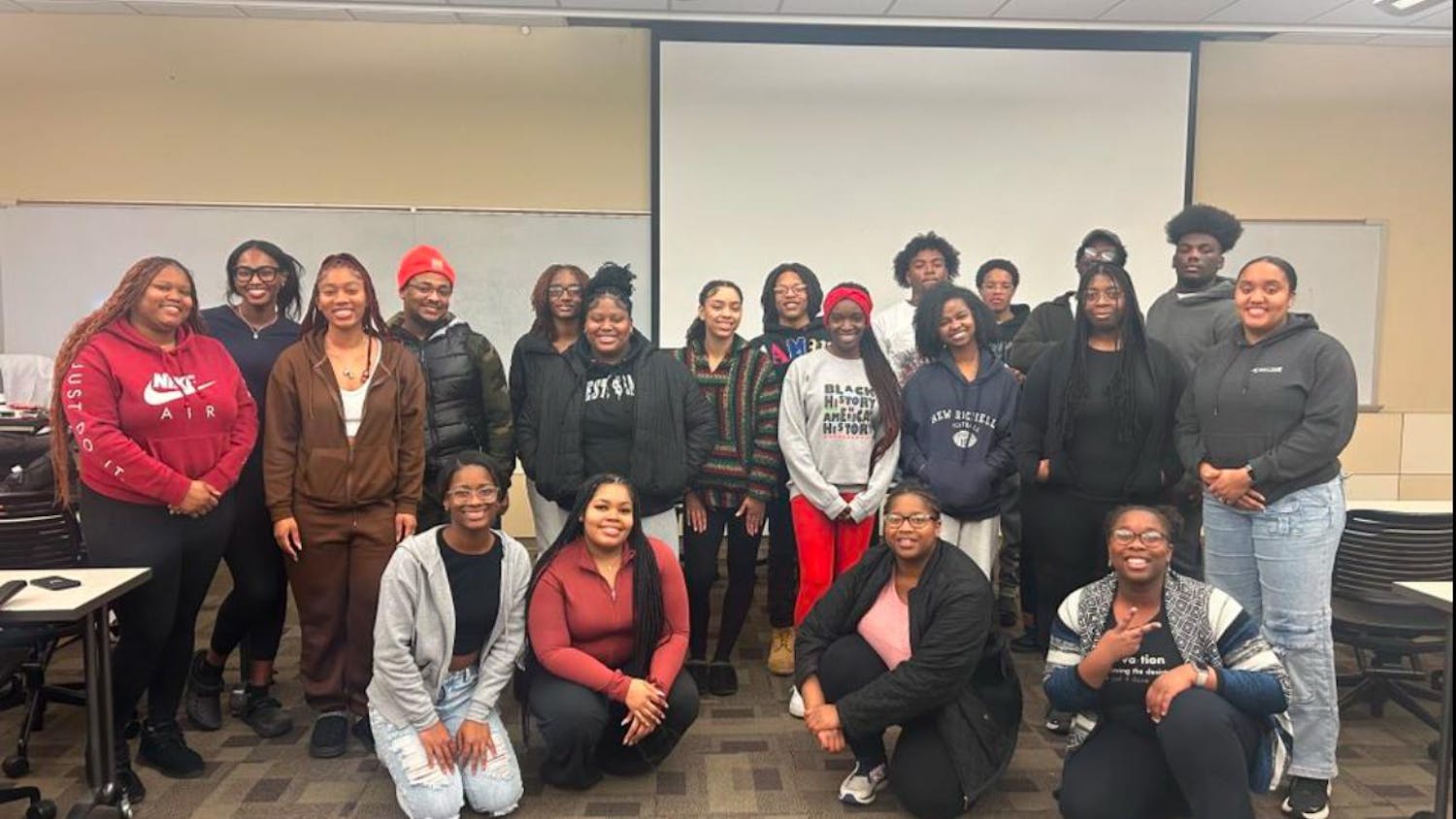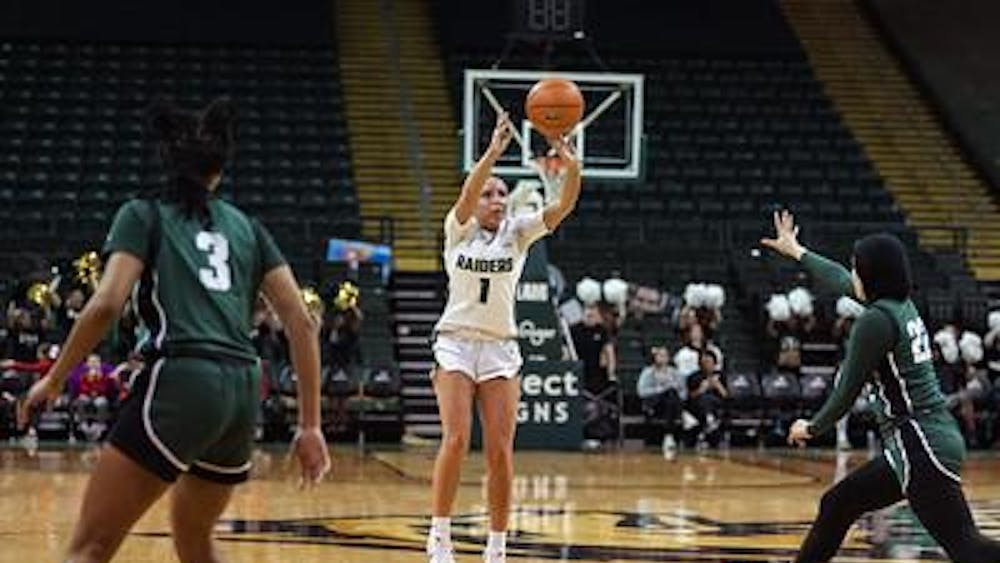“Humans for Sale: Slavery in Ohio,” (presented by the COLA Dean’s Student Advisory Board) featured a variety of speakers and events on Monday in the Apollo room from 6-9pm.
The event featured five speakers that focused on different elements of the issue, such as awareness of sex and labor trafficking, as well as the role of technology in human trafficking and ways that people can help the cause.
University of Dayton Political Science instructor Tony Talbot said that human trafficking was hugely profitable, drawing in nearly $35 billion in revenue. He also said that the business dehumanized victims, and destroyed lives.
“Their personhood is taken from them,” Talbot said. “Human trafficking is the modern day slave trade.”
Former Dayton Police Commander and adjunct professor Mary Leal spoke on the dangers of modern technology in human trafficking, such as cell phones and internet. She urged parents and guardians to be careful with cell phones in public places, because they can distract parents from watching their children properly.
“They’re quick and they get away,” Leal said of the captors. “They know their trade very well.”
Melinda D. Sykes is the Director of Children’s Initiatives in the office of the Ohio Attorney General. She spoke of some of the state-level legislation regarding human trafficking, including the “Safe Harbor Bill,” a bill designed to protect victims of coerced human trafficking from prosecution, and require appropriate services to be developed to help victims.
$146 dollars were raised for Love 146, a non-profit organization that fights human trafficking and exploitation. $141 was the amount originally collected, but organizing committee member and Student Government Chief of Staff Spencer Brannon donated an additional $5 to give the number significance.
“A lot of people are aware of this issue, but don’t really understand this issue,” said organizing committee member and Student Government Senator Sukhmanjit Singh. “I love doing student philanthropies, especially through student government, and to raise awareness of issues that affect students on and off campus.”












